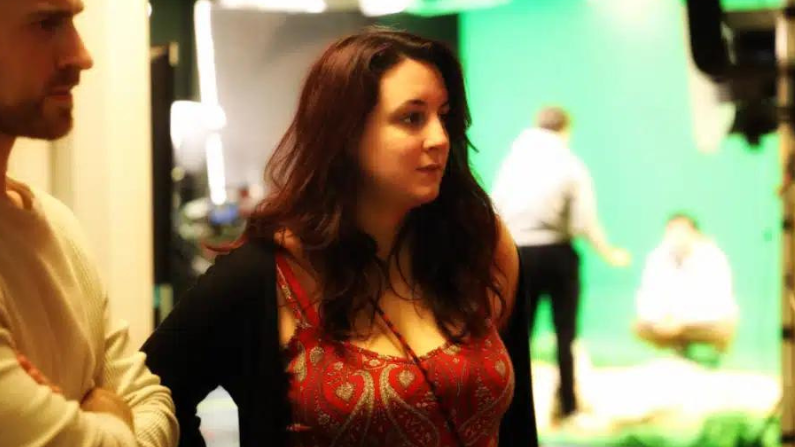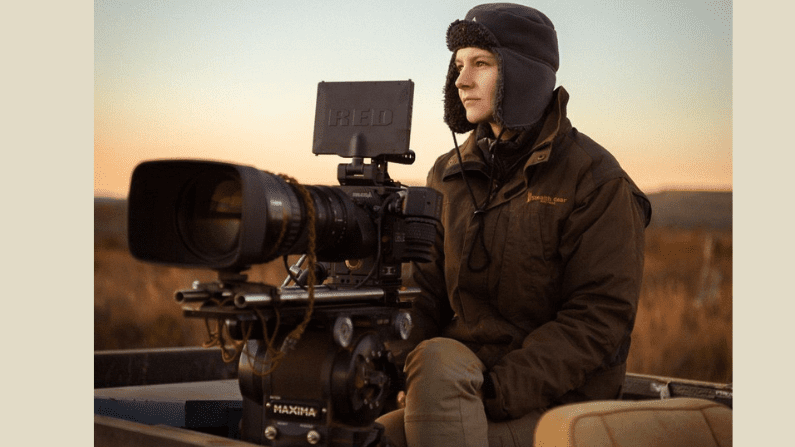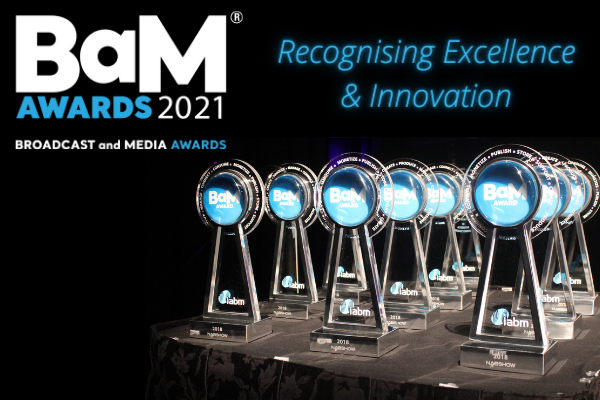What is the Greatest misconception of Virtual production? Juliette Thymi gives her thoughts

Juliette Thymi sits down with LBB’s April Summers to discuss how Mo-Sys Academy plans to ensure their training programs reach all the right people in all the right places – Paving the way for the Next Generation of Virtual Producers
This article was originally published by LBB in collaboration with Mo-Sys
Mo-Sys Academy is growing – both at home and abroad – so much so that soon it won’t just be Londoners who have access to the invaluable resources and technical training on offer. Technological advancements in this particular part of the industry evolve at a rapid rate, and Mo-Sys has made sure that staying in step with the very latest developments is built into the DNA of the Academy. This article was originally published by LBB in collaboration with Mo-Sys
Led by Mo-Sys’ team of experienced virtual production technicians, each bespoke training course focuses on imparting crucial skills and techniques that are in high-demand in the broadcasting, commercial and film industries. Overseen by Academy Manager, Juliette Thymi, the hands-on practical courses are designed to build confidence, making a virtual production specialist out of even the least experienced participant.
Informed by a melting pot of experiences, Juliette brings a fresh perspective to the Academy and works hard to ensure the training matches up to real-life industry requirements. In this interview, she lifts the curtain on her position at the helm of Mo-Sys educational arm, addresses common misconceptions surrounding virtual production, and gets frank about the reality of the industry’s male-to-female ratio, urging female creatives with a passion for production to follow their instincts and get stuck in.
LBB> Can you tell me a bit about your journey from the start of your career to where you are now?
Juliette> My background is in film production but includes studies in civil engineering and performing arts. I started at Mo-Sys a few years ago as a Virtual Production Technician, which required me to be on set operating the VP side of the shoot; the camera tracking, Unreal Engine, the process of virtual production for green screen and LED volumes. In my career so far, I have worked across many different environments, which has been quite helpful, because the job I have now is both creative and technical. Saying that, if you were to ask me a few years ago I never would have guessed I’d be in this job, which makes it even more exciting.
LBB> What drew you to the role of managing the Mo-Sys Academy?
Juliette> When I started at Mo-Sys, we didn’t have a training programme, so I had to learn everything by demonstration and by ‘doing’, most people had to learn this way. However, I noticed others don’t always have this opportunity and they might not have access to the equipment, despite wanting to learn how to work in virtual production. Due to my background, I could understand both the technical side and the creative side, so connecting the two aspects helped me create the courses.
It was just me at the helm when the Mo-Sys Academy started 18 months ago. Since then, the department has grown as more people have joined us, and we have trained a significant number of industry professionals along with hundreds of university students.
LBB> What does a typical day in the role of Academy Manager look like?
Juliette> My day-to-day responsibilities change depending on what’s going on in the studio. Some days I teach the course, other days I am primarily focusing on the bigger picture such as new course development. With the technology moving so fast, we want to make sure we are always up to date, offering the latest solutions available. This means that some days I also might be on set, getting hands on experience and a better understanding of what needs to be taught.
My main focus at the moment, though, is growing the department and spreading the knowledge as far as we can. We don’t want to purely focus on London – we are trying to grow the Academy to reach all the right people in the right places. Currently expansion is our main focus, which is exciting, but it’s also a big responsibility.

LBB? What is the biggest misconception about Virtual Production?
Juliette> That there is no post-production anymore. While virtual production may often mean less fixing is required in post, this time should be reallocated to organising pre-production. If you are prepared and organised then virtual production will move very smoothly and life is much easier. However, some people join the course thinking there is a simple button that can be pressed for all things virtual production, and nothing else is required, which is not the case.
LBB> Is it fair to say your sector of the industry is largely male-dominated? If so, why do you think this is?
Juliette> The truth is that both in my work environment and the classes I teach, there is a low percentage of women. And while I think it’s important to try and understand why the more technical jobs are male dominated, I fear that focusing too much on that fact makes it into a bigger deal than it needs to be.
My personal experience of working in this industry has been very interesting and really fun, so my advice to women who want to be part of it would be to just do it. You shouldn’t doubt if you will be good at something because you are either a man or a woman; if you are interested in this line of work, there is no reason for you to not try it out! I am personally happy to be part of a company that provides equal opportunities to everyone and I can see that the industry is changing for the better.
LBB> What changes in Virtual Production do you hope to see in the future?
Juliette> Expansion in the industry and more creative use of the technology. Not that VP is not used creatively at the moment, but we need more visioners that can extract what it has to offer and use it wisely. As a filmmaker, it is fascinating to see the (almost) final result while you are still shooting, and to be able to interact with the virtual world in real time. This workflow is already established in the TV and broadcast industry, but I would love to see it be adopted even more in films.
LBB> What are your hopes for the future of the Mo-Sys Academy?
Juliette> For it to continue to grow and expand. It is so rewarding to have people come in, not knowing how to use this technology, and then leave, inspired and motivated to use it for their projects. We want to achieve this in as many places as we can!
LBB> How would you summarise the Mo-Sys Academy in one sentence?
Mo-Sys has a long history of being ahead of the curve: the company created optical tracking over 25 years ago. Recognising the Virtual Production skills shortage, Mo-Sys established the very first Academy, as an extension of this vision. All of our courses are based around small group hands-on practical learning, using the very latest kit, which helps build confidence and ensures everyone leaves with invaluable hands-on VP experience that is simply unattainable from online courses.
LBB> Can you tell me a bit more about the different training programmes?
Juliette> At the moment, we offer VP intro classes, including our ‘Full VP foundation course’ which is a 10-day programme that includes everything that’s part of the workflow at a basic level. Whether you are starting out or upskilling from traditional to virtual production, you can take this course and get an overview of how to operate a VP system. We also offer shorter, fast-track courses on Tracking and Operating VP Systems, as well as LED wall Masterclasses.
We are working on developing more courses all the time, so every few months the offerings change. For example, we are launching second level courses for specific modules aimed at focused professional groups, more details will be available soon.
LBB> Your experience and understanding of the Virtual Production world spans a variety of disciplines. In your opinion, what area has seen the biggest uptick in interest in regards to the Academy?
Juliette> The LED wall, for sure, is a big hit and the shiny new thing in the industry. People want to learn more about it. At Mo-Sys we believe that the LED wall is not a standalone, you will still need a green screen and a real set to sell the idea of the LED wall and the virtual. We are sharing this opinion with students, to make sure they understand they will need to combine other skills with this training.
LBB> What are some of the success stories to come out of the Academy thus far?
Juliette> There have already been many success stories; we actually have a Facebook group where people share their news which is great. One that comes to mind is the success of three students from our VP summer school who made a film using VP, while in university, and were recently nominated at a local awards ceremony in 11 categories. They won in four of these and their film was broadcast on live TV. Needless to say, we were very proud of that group and their achievements. Another one of our former students is now working on a Hollywood production for a feature film, as a VP Technician, and the news keeps coming…
LBB> What is the best thing about your job?
Juliette> I never get bored, no single day is the same as the one before. I’m lucky to work with state-of-the-art equipment and visit amazing places as part of my job – I’m in LA right now! – plus there are lots of interesting conversations to be had, sets to visit and productions to be a part of. I can proudly say it is a very cool job!
This article was originally published by LBB in collaboration with Mo-Sys





